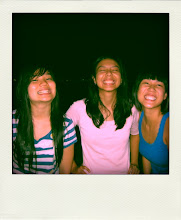You know when people say their life reads like a movie script? I've learnt that our everyday utterances are almost exactly that - scripted. Speech events follow a orderly pattern and, though it allows for a few variations, tend to be rather predictable. They include colloquial language, which would effectively distinguishes members of one culture from another.
Dr Deng mentioned that the term "Speech Events" originated from anthropologists and sociologists. So it got me thinking back on what indigenous speech events I've come across in my studies as a Soci major. And since I took a module on visual ethnography last semester, the film "To Live with Herds" (1971), by David and Judith MacDougall, stood out. It documents the life of Jie tribesmen in Uganda who are struggling to hang onto a pastoral lifestyle of cattle herding, as the country transitions into a modern capitalist society.
The Jie men are responsible for rearing the cattle and bringing these animals to graze in far-off plains, while the women stay behind at the homestead. I particularly liked the film's ending when Logoth, after walking miles from the Jie homestead (which he was initially left in charge of protecting), arrives at the cattle camp and exchanges greetings with his fellow Jie native. Here's the translated dialogue which i got from this website:
Friend: Hail, Logoth.
Logoth: Hail.
The Jie men are responsible for rearing the cattle and bringing these animals to graze in far-off plains, while the women stay behind at the homestead. I particularly liked the film's ending when Logoth, after walking miles from the Jie homestead (which he was initially left in charge of protecting), arrives at the cattle camp and exchanges greetings with his fellow Jie native. Here's the translated dialogue which i got from this website:
Friend: Hail, Logoth.
Logoth: Hail.
Friend: Hail, again.
Logoth: Hail, then.
Friend: Welcome.
Logoth: Hail to the compound.
Friend: You've come from home.
Logoth: Yes.
Friend: Indeed.
Logoth: I came.
Friend: Indeed.
Logoth: I came.
Friend: What's the news?
Logoth: None.
Friend: There's none.
Logoth: There's nothing.
Friend: Everything's normal.
Logoth: Only hunger is at home.
Friend: Indeed.
Logoth: And the Turkana raiding. [Turkana was a rival tribe]
Friend: Indeed.
Logoth: We're well here.
Friend: Yes.
Logoth: We're well here.
Friend: Hail, Reto. [I don't know who Reto is]
Logoth: Hail.
Friend: Hail to the cattle camps.
Logoth: Hail to my greeting to you.
Friend: May you grow old and walk with a stick. [I'm pretty sure that meant living to a ripe old age]
Logoth: Hail with thanks.
Friends: To cows.
Logoth: To our seeing each other again.
Friend: May you live.
Logoth: Hail next time too.
Friend: May you always live with herds.
Even in the most obscure of cultures, act sequences are still being played out. With the final sentence, Logoth's friend was expressing the hope that all other Jie natives share - to be able to sustain their indigenous livelihoods in the face of Uganda's rapid progress and modernization. The conversation provides a little insight to a longing for better days ahead, to the implicit traditional values that Jie people hold dear to their hearts.
Connotative meaning is something in which outsiders definitely need more effort to decipher and understand. Ah, the rich layers of cultural linguistics.
Connotative meaning is something in which outsiders definitely need more effort to decipher and understand. Ah, the rich layers of cultural linguistics.



to live with herds! yes i agree, no matter what culture, there are speech events and rules governing how they should conduct or carry out the speech and from the little speech, we can see what matters to the people of Jie =)
ReplyDeleteThe set of greetings strikes me as very ritualized, consisting of utterance pairs (like Hail-Hail, Hail again-Hail then). The uniqueness of this greeting sequence probably lies in their repetitiveness of some utterance pairs. But this is my first impression only. Fascinating stuff.
ReplyDelete